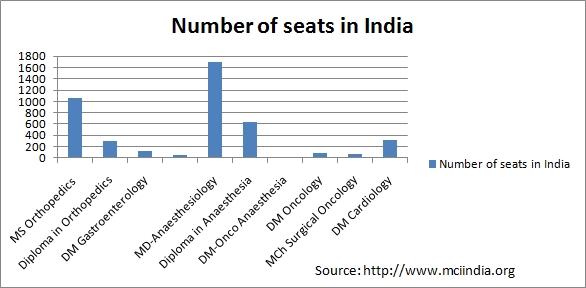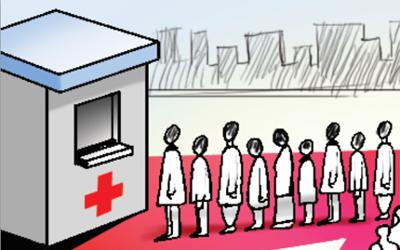Mr.Anil is 65 years old and has had some severe back pain for a few weeks now. He has a 10am appointment pre-booked with a specialist spine (orthopaedic) doctor. His plan was to finish his morning walk, meet the doctor and then return home for lunch. But, he’s been waiting in the OPD area well past his appointed slot and is only able to finish his preliminary consultation with the doctor by 12 noon, post which he is required to take an X-ray of Lumbar Spine which, unfortunately, can only happen by 2pm. He ends up having lunch at the hospital cafeteria and finally returns to the orthopaedic doctor with the X-ray at 3pm post his afternoon tea.
He has good news, thankfully, because the doctor prescribes just medication and physiotherapy for his pain. His fears of going under the knife, like his friend who had similar symptoms, are allayed.
But all wasn’t well either. Mr. Anil is diabetic and had to eat food that’s not per his prescribed diet and today it was well past his usual schedule. He is, rightfully, very unhappy with the hospital system and the doctor for not honouring his 10 am appointment slot.
So many of us have been in Mr. Anil’s situation – pregnant mothers, patients suffering in acute pain from injuries, people on fasting schedules for a routine blood test or full bladders for an ultrasound. We all sympathize with each other and blame the inconsiderate system.
For once, let us lift the curtain into the doctor’s and hospital’s situations and look at a few facts that paint a very different picture.
– In India there are just around 55000 MBBS seats for a population of more than a billion, which translates to 1 graduating doctor per 18000 patients
– Go further up the specialty chain and the numbers go further south; less than 2500 seats for orthopaedics that includes DNB, Diploma in Orthopaedics and MS Orthopaedics
– Around 1600 cancer specialists to treat an estimated ten million cancer patients (less than 300 seats for Oncology specialty that includes Surgical as well as Medical Oncology)

It’s actually tough to get the valuable appointment with the super specialist in such a situation, where the demand clearly exceeds the supply. If one gets quality face time with him/her, it is, in fact an additional bonus.
The doctors deserve credit for the multi-tasking that they do – be in the operating room performing surgeries, attend the OPD area to see regular patients, rush back for the next surgery and attend to every single emergency that comes their way. It’s not easy especially when the amount of attention is always required to be 100% and even the slightest lapse in concentration could lead to compromised patient outcomes.
One of the ways this problem is being addressed is by new start-ups that have mushroomed that are trying to leverage technology for a wider reach i.e., an Online Medical Opinion for health needs. Some alternatives that are being offered to conventional face-to-face meetings include:
– Video consultation that helps a remote doctor speak to a patient through the web. Through this method though, the patient can get quality time with a doctor who is relatively less loaded. The caveat though is that such consultations might work well for primary care (cough, cold, fever and similar illness that does not require a surgical intervention)
– Online tertiary care consultations where a patient could share his medical information for a Second Opinion. This could work well for tertiary care alone, for e.g.., orthopaedic problems, fertility issue, etc. Tertiary care online consultations in fact work best when a provisional diagnosis is done by a doctor with supportive data, like lab tests, X-rays, etc., and there is an intervention from a specialist for the direction of diagnosis.
As part of e-Second Opinion (Online medical opinion) initiatives, we at my-healthconnect specialize in connecting patients with providers for a Second Opinion (Online Medical Opinion) on their medical problem. Our initiatives have been helpful in connecting patients in sub-urban India as well as overseas patients to specialist surgeons in India for an opinion and, where required, the necessary follow-up treatment.



